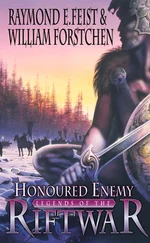“You’re seeing it too, then,” Laramie said.
“I am.”
In twenty steps, the sky blue glow became more pronounced, and when Cooper raised the beam of the Maglite they could see a louvered panel up ahead-the end of the line, and the source of that sky blue glow.
He moved the flashlight around some more, trying different angles, but it was always the same: it seemed no light was coming from beyond the louvers, but when he pointed the light in the direction of the panel, a blue glow would hit them. Soft-muted-but definitively sky blue. There were no sounds coming at them through the louvers.
Cooper brought the light around so they could see each other’s faces.
“May as well have a look,” Laramie said.
They hunched down at the base of the panel, listening. But there was nothing to hear.
Cooper reached up and tilted one of the louvers. He held the flashlight up and pointed the beam through a space between slats, and the two of them raised themselves to their elbows, more or less in unison, and had a look.
That was when they found themselves staring at the oddly displaced sight of an American strip mall.
Facing them was a full-size, brightly painted 7-Eleven sign, below which stood the store, beside which store stood a crop of surrounding businesses built on opposing sides of a main drag. The street came complete with left-turn lanes and accompanying traffic signals.
The source of the blue glow, she saw, was the color the walls had been painted above the buildings and street-sky blue, to duplicate the sky. Every store along the boulevard appeared to be fully stocked with merchandise; in fact, everything appeared to be picture perfect, at least outside of the fact that it seemed utterly lifeless. The power had been shut down, and not a single person was in sight.
After what might have been five minutes of silent observation, Laramie got a hold of herself. She turned and looked at Cooper.
“It’s Disneyland,” she said, “inside out.”
Cooper considered what she meant. “A theme park,” he said, “featuring the parts of Anaheim you find outside the park.”
“Or Orlando,” she said.
“Or anywhere.”
They stared through the panel at the odd view for a while longer.
“I’ll be goddamned,” Cooper said.
“So will I.”
Laramie considered the meaning behind what they’d just found. Despite the facility’s being abandoned, the apparent lengths to which the builders had gone in their attention to detail was staggering-or, she thought, disturbing. You’re the leader of a cell, or nation, or faction intending to lay your wrath upon the Great Satan, and you certainly don’t erect an underground suburban-America adventure ride to train one deep-cover sleeper agent.
“More like an army of them,” she said.
As Cooper turned and eyed her, she realized she’d spoken her thought.
“Come again?”
“Just trying to comprehend this,” she said.
“Far as I can tell, it means your ‘counter-cell cell,’” Cooper said, “has got its work cut out for it.”
“It’s your cell too, Mr. Operative.”
“Suppose you’re right.”
Laramie watched as Cooper worked his flashlight around the rim of the panel, her operative and onetime island-hopping companion examining the anchors that held the panel in place. He turned to dig through a pocket of his backpack, came out with an ordinary Swiss Army knife, and used the screwdriver tool to unscrew the panel’s fasteners. He managed to detach the panel without dropping it the twenty feet or so down to the street, and with Laramie’s help got it turned sideways so they could pull it inward. Laramie cringed as it scraped loudly, then made a noisy metallic bang on the concrete floor of the tunnel as they brought it in and released the grip they had on the thing a little early.
No follow-up sounds came.
Laramie poked her head over the ledge and discovered that a ladder was built into the concrete wall of the interior, rungs painted blue like the wall. She climbed out and started down the ladder.
After ten minutes of strolling wordlessly around the shops along the street, they came to stand in the middle of the 7-Eleven parking lot.
“It wouldn’t be too expensive to pull this off,” Laramie said. “I just can’t believe nobody stumbled across it in the ten or fifteen years it’s probably been here. Maybe it’s Fidel who’s behind this after all.”
“Maybe,” Cooper said.
He suddenly wondered whether his cash-paying participation in Castro’s invitational Texas Hold ’Em poker challenge hadn’t been the best of ideas. Then his thoughts of regret made him consider why Castro operated the poker tournament-and why Castro did just about everything he did, outside of rant and rave about the capitalist pigs ninety miles to the north:
For sheer profit.
“He rented it out,” Cooper said.
Laramie, who’d been stealing a look at the “sky,” looked down from the ceiling at Cooper.
“You mean Fidel?”
“It’s his MO,” Cooper said. “He’ll take cash for anything he’s got access to. Including, for instance, the San Cristóbal underground missile transport caverns. He’ll take other things-oil, for instance-but basically the man will sell or rent anything he’s got if you’ve got U.S. dollars to fork over. You name it-soldiers, prisoners, boats, property, whatever. Gotta keep the war chest funded so he can keep the revolution alive.”
Laramie considered this.
“So if you’re right,” she said, “the trick becomes identifying the tenant. Most likely a revolutionary crony of Castro’s-or at least somebody with access to the cronies.”
“Ten or fifteen years ago, anyway,” Cooper said.
Neither of them said anything for a while, Laramie considering some names, recalling photographs she’d seen in the international press of Castro’s many labor-movement, socialist, or anticapitalist-themed diplomatic summits-and the guests he’d hosted at those events, or who’d invited him to theirs. Thinking that she’d brought Eddie Rothgeb aboard for a reason, and this was it: he’d be able to pin the list of America bashers down to the top ten, or top five suspects most likely to emerge as public enemy number one-and chief tenant of Fidel’s rental park.
Cooper rotated the flashlight beam, pointing it down the road that led past the strip mall and turned a corner in the cavern at another traffic light maybe a hundred yards distant.
“Let’s take a walk,” he said.
Laramie came out of her Castro-comrade daydream. She knew they shouldn’t spend any more time down here than necessary, but she would need to see everything while they had the chance.
She dug into her backpack and came out with the digital camera her guide had procured for her before she’d boarded the plane in Florida.
“I’ll do the tourist thing,” she said. “Lead the way.”
They started down the street.
Cooper was riding too fast to turn them into the woods in time.
They came around a bend in the road, about half a mile toward the highway from the gate, and had to control their skids to avoid crashing into the side of the FAR jeep that had parked sideways across the road.
Blocking the way out.
Cooper had his hand on his Browning before the bike had completed its skidding halt, but the young man in fatigues seated behind the wheel of the jeep had his AK-47 trained on Cooper’s chest.
“No, no, no, no, no,” the man said.
Laramie swore as she skidded along the dusty road behind him, turned sharply and crashed, mostly to avoid plowing into Cooper’s rear tire. She stood slowly, uninjured, and the Cuban’s gun rotated to point somewhere between the two of them. The man was smoking a cigarette, the white stick dangling, ash-heavy, from his lips. The setting sun hung over the trees behind the guy, so it was hard to see through the glare and get any definition on his face.
Читать дальше
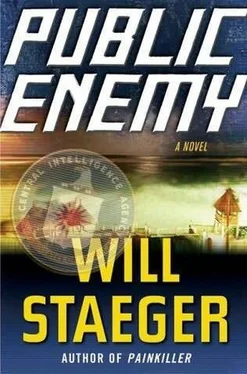
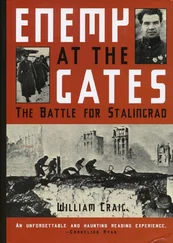
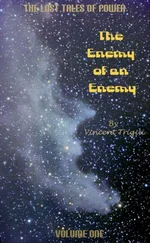
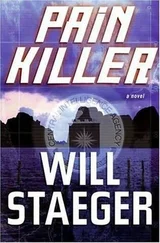
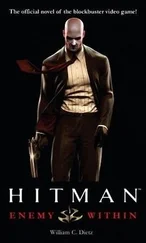
![Томас Гарди - Джуд неудачник [Литрес, Public Domain]](/books/437392/tomas-gardi-dzhud-neudachnik-litres-public-domain-thumb.webp)





